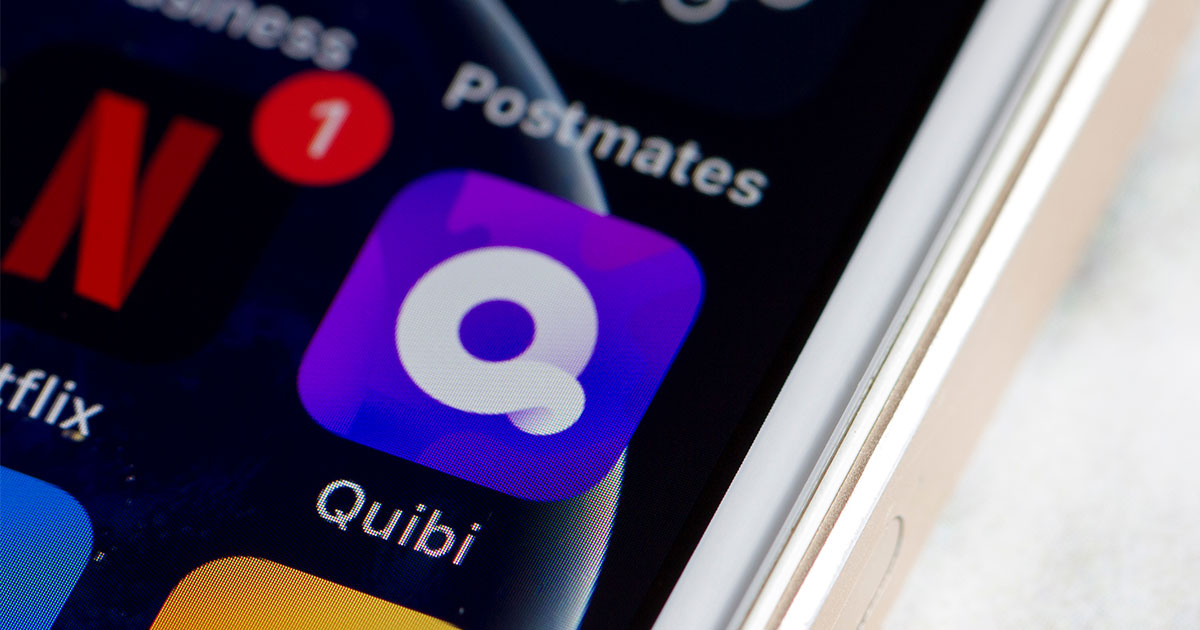The Lessons Learned from a $1.7 Billion Failure

Quibi seemed to have everything going for it.
The streaming startup was led by two power players, film producer Jeffrey Katzenberg and former Hewlett Packer CEO Meg Whitman, and its content featured a bevy of flashy Hollywood talent. Investors also had backed Quibi with a significant pile of money: $1.7 billion.
But then, a mere six months after it launched, Quibi announced it was shutting down. The high-profile failure left many wondering what went wrong. How could such a collapse happen, considering the big names and the big money involved?

Yasuhiro Yamakawa, associate professor of entrepreneurship, is affectionately called “Dr. Failure” by Babson students because he looks to the bright side of business setbacks.
“I am sure there are myriad reasons combined why they failed,” says Yasuhiro Yamakawa, associate professor of entrepreneurship at Babson. Failure is a fact of life in entrepreneurship, says Yamakawa, even for startups with superstar leaders and deep pockets. Instead of gawking or gossiping about Quibi’s precipitous demise, he believes the important thing, as with all startup failures, is to find the lessons to be learned from it.
“It’s easy to criticize. Anyone can do that,” says Yamakawa. “But it has to be constructive.”
At Babson, students affectionately call Yamakawa “Dr. Failure” because he looks to the bright side of business setbacks, seeing them as learning opportunities rather than something scary or embarrassing. “Failure is something that happens,” he says. “It’s OK to fail. It’s not OK to fear failure.”
As he thinks about the fall of Quibi, Yamakawa shares three key lessons.
Fail Fast
One of the most stunning aspects of the Quibi failure is the jaw-dropping speed in which it happened. The mobile-first streaming service, which specialized in short-form original programming, debuted in early April. By October, it threw in the towel, reportedly returning its remaining capital, $350 million, to investors.
Yamakawa, however, praises the venture for quitting so soon. “For me, six months was rather quicker than I anticipated,” he says. “Usually companies don’t shut it down so quickly.” Too often, struggling ventures continue on for far too long, floundering and hoping they can fix what’s wrong. “It is so tempting to believe you will recover,” he says.
The decision to walk away from a venture becomes harder the more time, effort, and money you put into it. “The more you escalate your commitment, the more you spend, the longer it takes for you to actually close down,” says Yamakawa.
That’s why he gives credit to Quibi’s leadership. Instead of hanging on and wasting money on a service they knew wasn’t catching on, they made the hard, but right, call. “The earlier you stop it, the better off you are,” he says.
Be Honest with Yourself
As Yamakawa says, there are myriad reasons Quibi failed. It faced stiff competition from already established streaming platforms, and it never produced a hit show to generate much needed buzz.
Of course, not to be overlooked is the pandemic and the tremendous disruption it has caused. Quibi’s short videos were meant to be watched by viewers on the go, but with the pandemic’s lockdown, none of those potential viewers were going anywhere. “I attribute everything that has gone wrong to coronavirus,” Katzenberg told The New York Times in May.
“The number one reason startups fail is they have a solution without a problem.”
Yasuhiro Yamakawa, associate professor of entrepreneurship
When entrepreneurs take stock of their ventures, says Yamakawa, they seek reasons for their failures. Some may focus exclusively on external factors. “People blame it on luck or the weather almost,” he says. To truly learn from failure, however, entrepreneurs need to be honest with themselves. “You need to look at what you did wrong. Then, you will do better next time.”
That means entrepreneurs can’t blame all their problems on COVID-19. “It’s part of it, of course,” Yamakawa says, “but not all.”
Have a Problem to Solve
To understand why Quibi or any startup fails, Yamakawa always starts with a basic question: What was the problem they were trying to solve, and did they solve it better than others?
“The number one reason startups fail is they have a solution without a problem,” he says. Entrepreneurs may come up with an idea that their intuition tells them is great, but they still need to talk to potential customers and see if that great idea is indeed something that adds value to people’s lives. “Listen to the people,” says Yamakawa. “Not all gut feelings turn into positive returns.”
In the case of Quibi, a streaming service for short-form videos may have seemed like a great idea, but what need did customers have for it when plenty of other solid streaming services already existed?
In short, Quibi essentially was offering a solution for a problem that didn’t exist, says Yamakawa, and that may be the biggest reason it ultimately failed.
Posted in Insights




